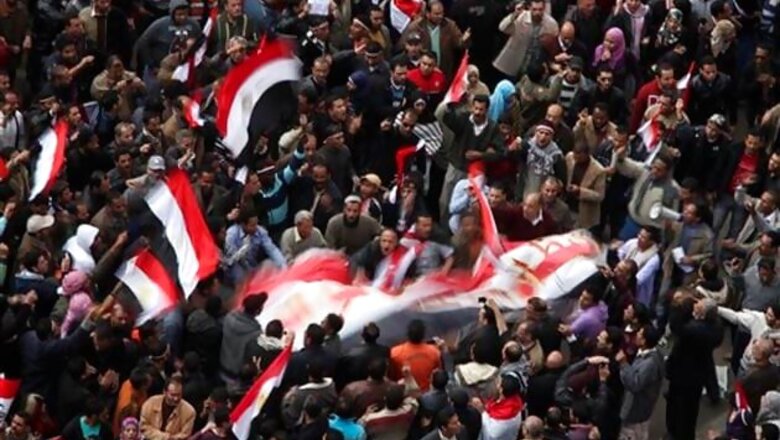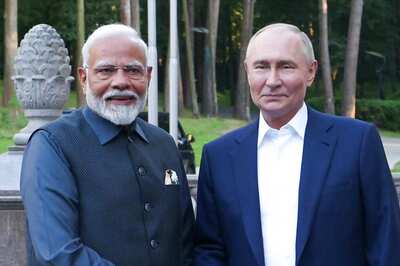
views
Cairo: Egyptians head to Tahrir Square on Wednesday to mark the first anniversary of the uprising that toppled Hosni Mubarak with some seeking a new revolt against army rule and others celebrating the changes already achieved.
It is a year since protesters inspired by an uprising in Tunisia took to the streets in Egypt and the January 25 anniversary has exposed divisions in the Arab world's most populous country over the pace of democratic change.
Concerned the generals are obstructing reform to protect their interests, the pro-democracy activists behind the "January 25 revolution" plan marches to Tahrir Square to demand the military council that replaced Mubarak hand power to civilians immediately.
But well-organized Islamist parties which dominated Egypt's most democratic election since army officers overthrew the king in 1952 are among those who oppose a new uprising.
Signs of friction were on show as hundreds of people began to congregate in Tahrir Square late on Tuesday, pitching tents in winter rain and hanging the national flag from buildings.
"The military council is Mubarak," said Amr al-Zamlout, a 31-year-old protester clutching a sign declaring "there is no change" and stating his aim was to topple the army rulers.
Mohamed Othman, an accountant, stopped to put forward a different view based on the idea that Egypt needs stability for economic recovery, not more protests.
"The council will leave power in any case. Sure the revolution is incomplete but it doesn't mean we should obstruct life," he said. His criticism quickly drew a crowd and touched off an argument.
Grocery stores were unusually busy as shoppers stocked up, reflecting concern at the prospect of a repeat of last year when protests went on for 18 days before Mubarak was forced to step down on February 11.
Protests against the military council turned violent in November and December.
The United States, a close ally of Egypt under Mubarak, praised "several historic milestones in its transition to democracy" this week, including the convening of parliament.
"While many challenges remain, Egypt has come a long way in the past year, and we hope that all Egyptians will commemorate this anniversary with the spirit of peace and unity that prevailed last January," a White House statement said.
Headed by Field Marshal Mohamed Hussein Tantawi, the military council has said it will cede power to an elected president by the end of June, thus completing a democratic transition.
Yet pro-democracy activists doubt their intentions, pointing to a surge in military trials and the use of violence against protesters as signs of autocratic ways familiar from the Mubarak era.
Tantawi, for two decades Mubarak's defense minister, again defended the military from such accusations during a televised speech on Tuesday. "The nation and the armed forces had one aim: for Egypt to become a democratic state," he said.
In an apparent attempt to appease reformist demands, the military council has in recent days pardoned some 2,000 people convicted in military courts since Mubarak was toppled. On Tuesday it announced a partial lifting of a state of emergency.
But it kept a clause saying emergency laws in place since 1981 would still apply in cases of "thuggery," a vague term that triggered calls for clarification from Washington and more criticism from human rights groups.
The activist movement, a coalition of groups united in calls for deeper and faster reform, have been fighting back in the run-up to the anniversary against what they describe as state efforts to present them as foreign-backed trouble makers.
The leader of the Muslim Brotherhood, the Islamist group which won nearly half the seats in the parliament, said last week he was against calls for a new revolt against the military.
"I hope we will go down together to be joyful at what we have accomplished, to guard our Egypt and to complete the demands of the revolution," Mohamed Badie said in an interview with Egypt's Dream TV.



















Comments
0 comment